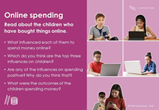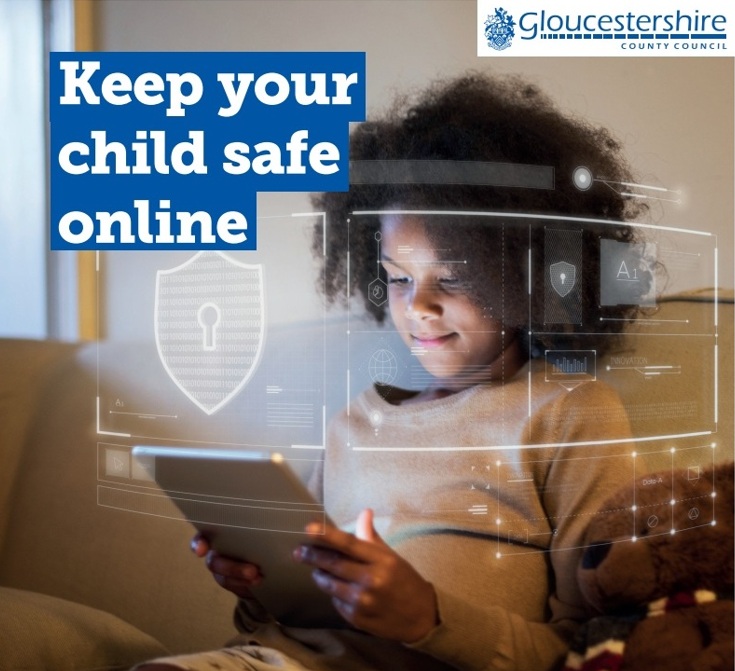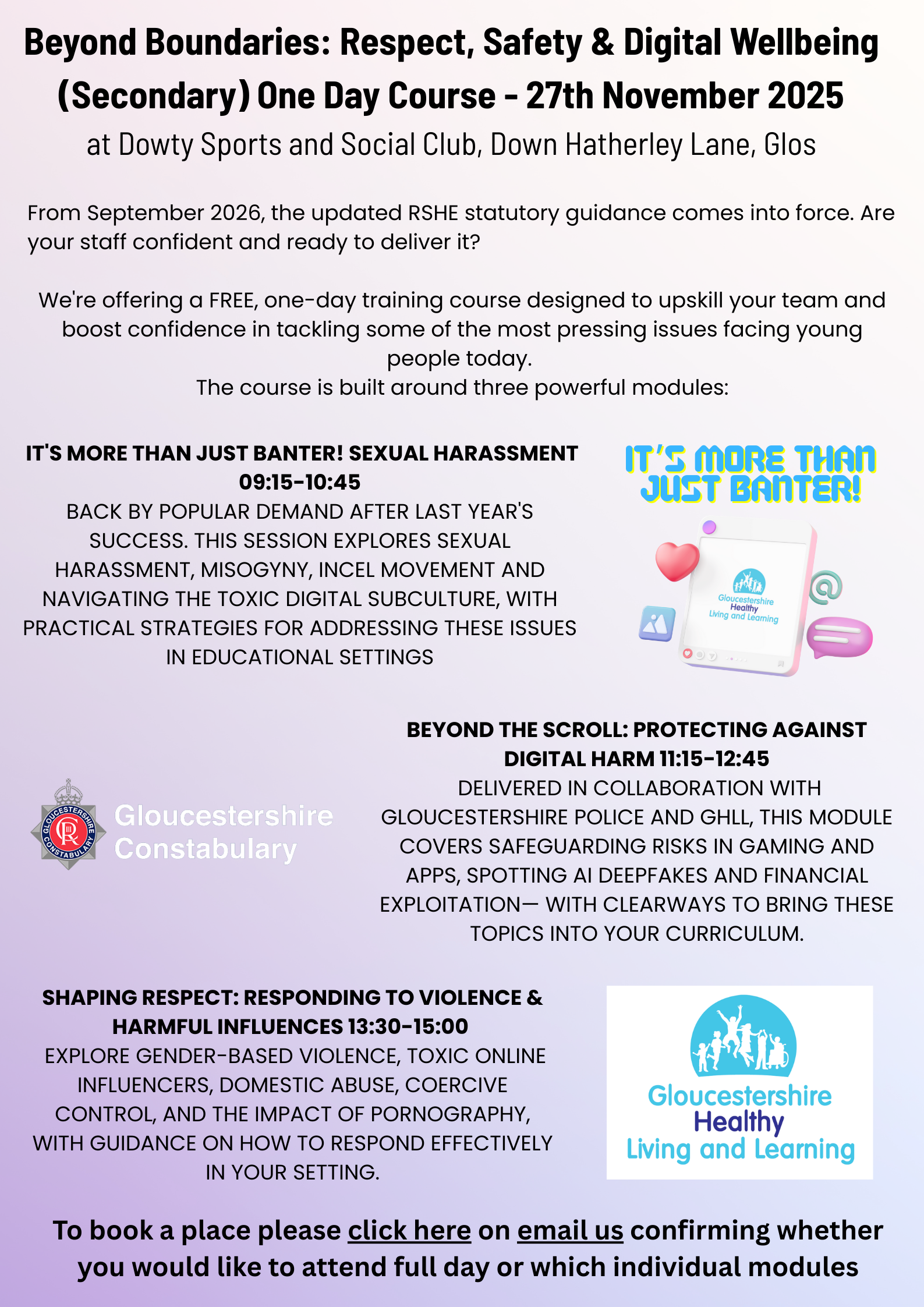Online Safety - Key Stage 5

Beyond Boundaries: Respect, Safety & Digital Wellbeing (Secondary) One Day Course
Join us on 27th November for this FREE, one day training course designed to upskill your team and boost confidence in tackling some of the most pressing issues facing young people today. The course is built around three powerful modules, see poster below.
Signposting Support
Ensure students know where they can seek help and further advice, both now and in the future, if they are concerned about sending, receiving or being pressured to share nude images. The sources of support highlighted in Not Just Flirting include:
-
NSPCC’s Report Remove tool to take down nude images of themselves
-
Thinkuknow advice on sharing naked and semi-naked images
-
Reporting online abuse to CEOP via webform
-
Childline website for advice and confidential support
- Think Before You Share for guidance and support around sharing pictures. Includes resources for teachers.
Teachers wishing to seek further guidance on the issue of sharing nudes can visit:
-
Gov.uk advice - Sharing nudes and semi-nudes: advice for education settings working with children and young people
-
CEOP & Thinkuknow guidance and advice for professionals
UK Safer Internet Centre
UK Safer Internet Centre is a partnership of three leading charities, Childnet International, Internet Watch Foundation and SWGfL, with a mission to make the internet a better place for children and young people. It coordinates Safer Internet Day across the UK and provides support with online safety issues via a helpline to professionals working with children and young people. The centre has produced a range of education packs covering all year groups to help schools promote internet safety.
Sextortion
Sextortion is a crime rapidly on the increase. The Internet Watch Foundation found a 19% rise in sextortion cases among young people in the first half of 2024 compared to the same period in 2023.
What is 'Sextortion'?
- Perpetrators often pose as friends or romantic insterests, building trust to request images or videos
- The sexually explicit material obtained through coercion and deception, is used to threaten victims into sending them money

- The will threaten to release the material until their demands are met
Brook have suggested 3 ways you can help prevent it:
1. Educate and raise awareness
2. Know and recognise the warning signs
3. Create a safe environment
Read the full blog here.
Further Resources on Sextortion:
View the Sextortion PowerPoint
Hampshire Sexting Victim Felt She was 'in a zoo'
When she was 14, Megan Hinton was tricked into sending a naked photo of herself over social media and suffered abuse at school as a result.
She was trying to fit in at a new school, after being bullied at her previous one. Megan thought she was being pressured by a boy she was friends with to send the picture. In fact she had been tricked by a girl from her year group, who shared the picture with other pupils.
Megan has since joined forces with Hampshire Constabulary to make an educational film about her story, for Safer Internet Day.
Online Financial Harms- Lesson Plans for Key Stage 2 - 5 and SEND
The PSHE association's new, free, lessons plans and on-demand CPD course are aimed at protecting children suffering the cost of going online- from scams and fraud to exploitation and extortion.
Click here to find our more and access the Free lesson plans
Using AI in Education Settings 
See the support materials developed by the Chiltern Learning Trust (CLT) and Chartered College of Teaching (CCT), to support the safe and effective use of generative AI in education.
New Online Harms Parent Portal
Following concerns raised by parents, Gloucestershire County Council has launched a new online resource giving parents and guardians information about the benefits and risks of online spaces, with details of further information and where support is available.
Click here to visit the Website
They have also created a number of posters which can be downloaded from the website to display in public areas.
Tagged under: online safety, sexting, safeguarding, Key Stage 5, sextortion, sexual coercion, blackmail, LGBT, PSHE, RSE, KS5, support, abuse, AI, artificial intelligence
Was the information on this page helpful? 



